Practical information about Kuala Lumpur, Malaysia
If you are planning to visit Kuala Lumpur this is the page where you will find the practical information that you need. Countries and even the regions and cities within them can have an unique set of norms and values. So it can be very practical to understand the local customs before visiting an exotic country. It’s very practical to prepare your holiday or business city trip to Kuala Lumpur by taking notice of the practical information below. It will not only help you understand and be aware of the local Malaysian culture, norms and values, but you will also get insight into the amazing festivities, the visa rules, the currency, the language and the climate of Malaysia.
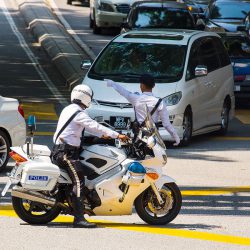
Police, fire brigade and ambulance in Malaysia
When you go to Kuala Lumpur, Malaysia you probably only think about all the fun things to do, but it is also wise to have some phone numbers in case an emergency takes place. So we made a list with the most important telephone numbers of the emergency services.
– The police as well as the ambulance in Kuala Lumpur have emergency phone number: 999 from a fixed line and 112 from a mobile phone.
– The fire brigade in Kuala Lumpur has phone number: 994 from a fixed line and 112 from a mobile phone.
– The tourist police in Kuala Lumpur has its own phone numbers which are: 03 2149 6590 for the hotline, 03 2149 6593 for enquiries and 03 8787 2312 for customs.
If you make a phone call to Malaysia from another country you will first need to dial the country code +60 followed by a city code. In the case of Kuala Lumpur you will first need to dial +603.
– The non-government organisation St. John Ambulance of Malaysia provides first aid and community services to the public and have phone number: (+603) 9285 1576
– The Malaysian Red Crescent’s Emergency Ambulance Service complements and supplements the government emergency medical services and can be reached at phone numbers: (+603) 2143 8122 and (+603) 2143 6122
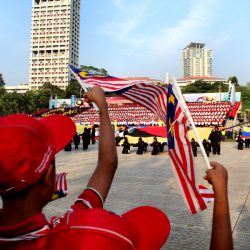
Holidays and festivities in Malaysia
Malaysia is a culturally rich country and so is the city of Kuala Lumpur. Many different ethnic groups like Malaysians, Chinese and Indians live together in this city. Most of them are Muslim, or Buddhist, but there are also large groups of Christians, Hindus, Taoists and Confucianists. The influence that all these groups have are reflected in the numerous different public holidays and festivities in Kuala Lumpur.
In 2024 the holidays are expected to be as followed:
1 January – New Year’s Day.
25 January – Thaipusam. It is a Hindu ceremony and a tribute to the Hindu god of war, Lord Muragan.
1 February – Federal Territory Day.
10 to 12 February – Chinese New Year, also called Spring Festival or Lunar New Year.
28 March – Nuzul Al-Quran. Muslim celebration of the revelation of the Quran to the Prophet.
10 to 11 April – Hari Raya Aidilfitri. Muslim holiday that celebrates the breaking of the fast.
1 May – Labour Day.
22 May – Wesak Day. Buddhist celebration of Buddha’s birth, enlightenment and death.
3 June – Agong’s Birthday. The birthday of the Malaysian king.
17 June – Hari Raya Haji. Muslim holiday, the feast of the sacrifice.
7 to 8 July – Awal Muharram. Islamic New Year
31 August – Merdeka day. National independence day
16 September – Malaysia day. Founding of the Malaysian Federation
16 September – Prophet’s birthday. Muslim holiday.
31 October – Deepavali. Hindu holiday also known as the festival of lights.
25 December – Christmas. Christian celebration of the birth of Jesus.
31 December – New Year’s Eve (not an official public holiday).
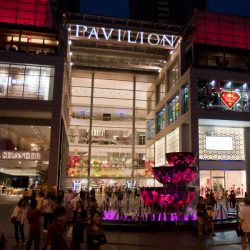
Opening hours in Kuala Lumpur
The opening hours in Kuala Lumpur depend on the area and the activity.
Shopping malls and shopping streets are generally opened: Mon-Sun 10.00 am – 10.00 pm.
While in some food street like Jalan Alor the opening hours seem to be 24 hours a day: Mon-Sun 24hrs.
Governmental organisations like libraries are opened: Mon-Fri: 8.00 am – 5.00 pm. Sat: 10.00 am – 7.00 pm. Sun: 10.00 am – 6.00 pm.
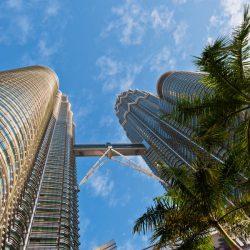
Weather and climate in Malaysia
The city of Kuala Lumpur has, like large parts of Malaysia, a tropical rainforest climate. This type of climate can be described as warm, sunny, with high air humidity and ample rainfall. This rainfall mainly takes place during the wet season, which is from October to March. This is also called the wet season. The dry season is from May to September, but also during the dry season you could expect over 10 days with rainfall. There are two monsoons during the year, which are the the Southwest Monsoon in the dry period from March to April, and the Northeast Monsoon in the wet period from October to November. In these two periods the rainfall switches from the mornings to the late afternoon. At times the rain will go on for an hour or so, but thereafter the rain is most of the times gone and replaced by the sun.
Although many visitors prefer the dry season, there is no real good reason why you shouldn’t visit Kuala Lumpur during the wet season. It is true that the fireflies in Kuala Selangor don’t like the rain, but on the other hand are the Hindu Batu Caves beautiful in the rain. And the city itself has a good infrastructure, is paved and has even covered walkways.
The temperature is pretty constant during the year averaging 27 degrees Celsius (81 degrees Fahrenheit) for the inland like Kuala Lumpur and mountain areas. The coastal areas have a more sunny climate with average temperatures about 30 degrees Celsius (86 degrees Fahrenheit).
So because of the temperature it is advised to wear lightweight and loose-fitting cotton clothing, but don’t forget to bring your umbrella. Remember that the Islam is the main religion in Malaysia and it is advised to avoid offending local sensibilities. At religious places men should take care that their legs are covered and women should cover their legs and upper arms.
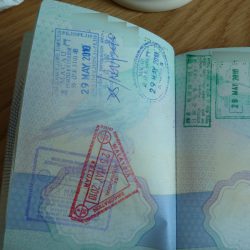
Passport and visa in Malaysia
The first thing that you should do is checking the validity date in your passport. Malaysian immigration authorities require that your passport is valid for at least six months after your departure date. If this isn’t the case they won’t permit you to get in the country.
The second thing that you have to check is if for your country a visa is required. If a visa is not required you need to check for how many days this isn’t required. Many visitors of Malaysia don’t need a visa when they visit Malaysia for a holiday or business. If your country is exempt for needing a visa you get a permit to stay in the country for a determined period. How long this period is depends on the country where you are coming from. For most exempted countries this period could be either 90 days, 30 days, or 14 days.
If you need a visa it is important that you get this in your home country before departure as Malaysia doesn’t offer visas to foreigners after they arrive.
A convenient site to check if you need a visa for Malaysia and how long it is valid is VisaHQ. Acquiring the right visa can be a hassle as there are different requirements for a tourist visa, a business visa and a work visa. This specialised company has the right knowledge and can arrange the required visa for you.
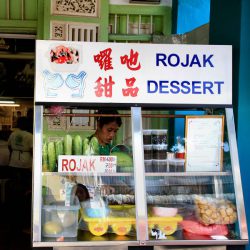
Language spoken in Malaysia
Malaysia is a country with many ethnic groups. The country has speakers of 130+ living languages, but the only official language of Malaysia is Malay although it is also referred as Malaysian or Bahasa Malaysia. Malay is dominantly and officially written in Rumi, which is a Latin script, but sometimes you will find places where people write Malay also in Jawi, which is an Arabic script.
Because Indians and Chinese are also large ethnic groups in the country, the government provides besides Malay, also Tamil and Mandarin at the primary schools. Another mandatory language of the primary and secondary schools, and even the main language of private schools and universities, is English. This means that English is widely spoken in Malaysia, especially in the big cities like Kuala Lumpur, George Town and Ipoh around the tourist attractions and in business. However, you have to bear in mind that the “Malaysian English” is a form of British English that is affected by the Malay, Tamil and Chinese language.
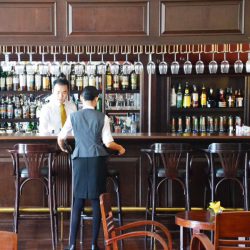
Tipping culture in Malaysia
In general you are not expected to tip in Malaysia as it isn’t normal practise in their culture. But if you have received an outstanding service, you are free to do so and it will be appreciated. There is no fixed amount or percentage that you should give when you do tip. You decide if you want to tip and how much that should be. But if you need some guidance, this is what you could consider.
In Malaysian restaurants it is normal practice that there is a 10% service charge added to the bill. Because of this service charge, which covers the tipping. As the tip can already be included in the bill there is no need for a tip. If a service is especially well received then some people do tip, then they wait for the change and give the coins as a tip for the waiter. If a service has been exceptional locals and tourists can decide to round up the bill.
In touristic areas waiter/waitress that serves you in a bar, club or similar establishments do commonly receive tips from travelers. It is not a requirement, but also not unusual to give a tip of about 10% of the bill. Of course their service needs to satisfy your expectations.
In Malaysian hotels is tipping not required. In their room price is often a service charge included. Although it is not expected it is well appreciated if you tip the housekeeper, room service, or bellboy. Depending on your budget and the service that you have received you can opt to tip between 2 and 5 Malaysian Ringgit per service. Sometimes tipping will help you to get you some extra attention from the hotel staff during your stay.
When you take a taxi you are not expected to tip the taxi driver. Especially if the taxi driver didn’t put on the meter, because chances are high that you already have paid too much for the ride. But if you really want to tip you are free to do so.
If you join a group tour guide a tip is not required, because that is probably included in the price. On the other hand you can tip the guide if it is a private tour guide and the price and service of the tour was good.
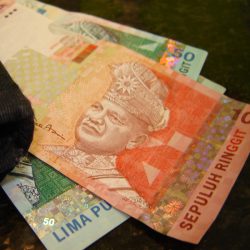
Paying in and the currency of Malaysia
The national currency of Malaysia is the Malaysian ringgit. Its international currency code MYR, and its official abbreviation is MR. One ringgit is divided in 100 cents (in Malay: 100 sen).
There are four different coins of which the values are: 5, 10, 20 and 50 sen. The banknotes come in six different values: RM1 (the blue note), RM5 (the green note), RM10 (the red note), RM20 (the orange note), RM50 (the blue/green note) and RM100 (the purple note).
Malaysia doesn’t have any restrictions for non-residents bringing foreign currencies in or out of the country. This is different regarding the Malaysian ringgit. Non-residents are allowed to bring up to the equivalent of 10.000 USD in ringgit in or out of the country. And yes this also includes traveller cheques. If you need to deviate from these restrictions you can ask for written permission from the Exchange Control Department.
It is possible to bring your home currency with you and change them after arrival in Malaysia for Malaysian ringgits. Especially at spots where many travellers come by you can find foreign exchange (FOREX) booths, money changers, travel exchanges or banks to change your local currency into Malaysian ringgits.
Another option is to withdraw the necessary ringgits in Malaysia. On the airports of arrival, at the tourist spots, banks and shopping malls you will find enough ATMs. We from Meet The Cities advise to change at least some of your home currency to ringgits before departing to Malaysia so that you have some ringgits in case an incident does occur on arrival. But it is absolutely not necessary to change your complete travel budget into ringgits as there are enough ATMs in Malaysia where you can withdraw money. It depends on your bank if there are any fees associated with withdrawal of money in Malaysia. Beware that having too much money on you could make you an attractive target for thieves.
Whether you use a debit or credit card. In case you’re from another region than South-east Asia it can be wise to inform your bank which period you are in Malaysia so that they don’t block your debit or credit card when they suddenly notice a transaction from a faraway region. Always take a phone number of your bank with you so that you can contact them in case there are any problems with your debit or credit card.
In case you want to make use of an international money transfer you have to provide at least the next details: the account number, the account holder, the name of the receiving bank, the IBAN number of the receiving bank and the SWIFT code. International money transfers will usually take five to seven workdays. A faster option, but possibly with a higher fee, is a transaction with Western Union.
The three largest and trustworthy banks in Malaysia are: Malayan Banking, Public Bank Berhad and CIMB.
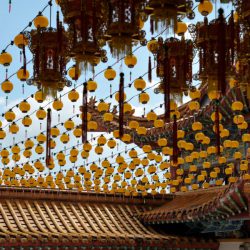
Culture and values in Malaysia
In Malaysia do live many ethnic and religious different cultures together. In order to understand the cultures, traditions and values of this country you first need to understand the geography of the country.
Malaysia is a country that is physically split in two areas: East Malaysia and West Malaysia. West Malaysia is in the south of the Malay peninsula where it borders with Thailand in the north and Singapore in the South. Most cities and immigrant groups in West Malaysia are located on the west coast. East Malaysia is on the north of Borneo where it borders with Indonesia and Brunei. Here do mainly live Malay people, but it is less wealthy and also has less than 30% of the total Malaysian population, so they tend to have less influence on the Malaysian culture and values than the people from West Malaysia.
Because of the immigration there are three main cultures in Malaysia, which are the Malay culture, the Chinese culture and the Indian culture. Smaller groups can have an Eurasian culture or several indigenous cultures from the Malay peninsula or Borneo. Other influences of Malaysia’s culture come from the Persian, Arabic and British culture.
In the 1971 National Culture Policy the Malaysian government provided some guidelines for what they considered as Malaysian culture:
– Malaysian culture is based on the cultures of indigenous people.
– Elements from other cultures that are judged suitable and reasonable may be considered Malaysian culture.
– Islam is an important part of Malaysian culture.
Currently the ethnic groups are approximately divided as follows: 50% Malay, 22% Chinese, 12% Indigenous, 7% Indian and 9% other. Of these ethnic groups are the Malay dominant in politics and the Chinese dominant in business.
Although Islam is the official religion in Malaysia, many world religions are present in Malaysia. The different religious groups are approximately divided as follows: 61% Sunni Islam, 20% Buddhist, 10% Christian, 6% Hindu and 3% other. These ethnic and religious groups are correlated with each other as most most Malays are Muslim, most Chinese are Buddhist and most Indians are Hindu, but each of these ethnic groups also have a Christian minority.
This mix of ethnic and religious groups makes Malaysia a very cosmopolitan place. The government makes a lot of effort to not privilege one group over another and to keep all of the groups satisfied, which is not always an easy task. This diversity has the advantage that Malaysians easily understand and connect with people from all over the world. And because of the existence of all these different groups in the Malaysian society, they easily accept some mistakes in etiquettes from outsiders.
An example of such an etiquette is that not every outsider knows that you should greet, receive, give and point only with your right hand, since the left hand is used for cleaning the body. A handshake with the right hand is considered standard between men, but some Malaysian people don’t shake the hand with people from the opposite gender. If you are a man, then you could wait for the woman to reach out her hand first. Malaysian culture is very hierarchical and saving face is very important. As a result is their way of communicating not always as direct and very polite. People in general, but especially persons with high ranks, expect to be treated with much respect. A simple example of respect is to use people’s title and surname when speaking to them. Use the first name (together with a Mr. or Mrs.) only when you are absolutely sure you’re allowed to do so. Another example of respect in business is to accept a business card with both hands and study it before putting it away. And if you do argue with a Malaysian person make sure it is in a private place and not in public in order to let the person save face.
A great side effect of this diversity is that there has arisen a delicious Malaysian cuisine which is partly divided by ethnic lines, but has also mixed foods with influences from Malay, Chinese, Indian, Sumatran, Javanese, and Thai cuisines. If you have dinner with a religious person make sure you have checked their dietary requirements. Different from western dinners is that food is served at once instead of in courses.
